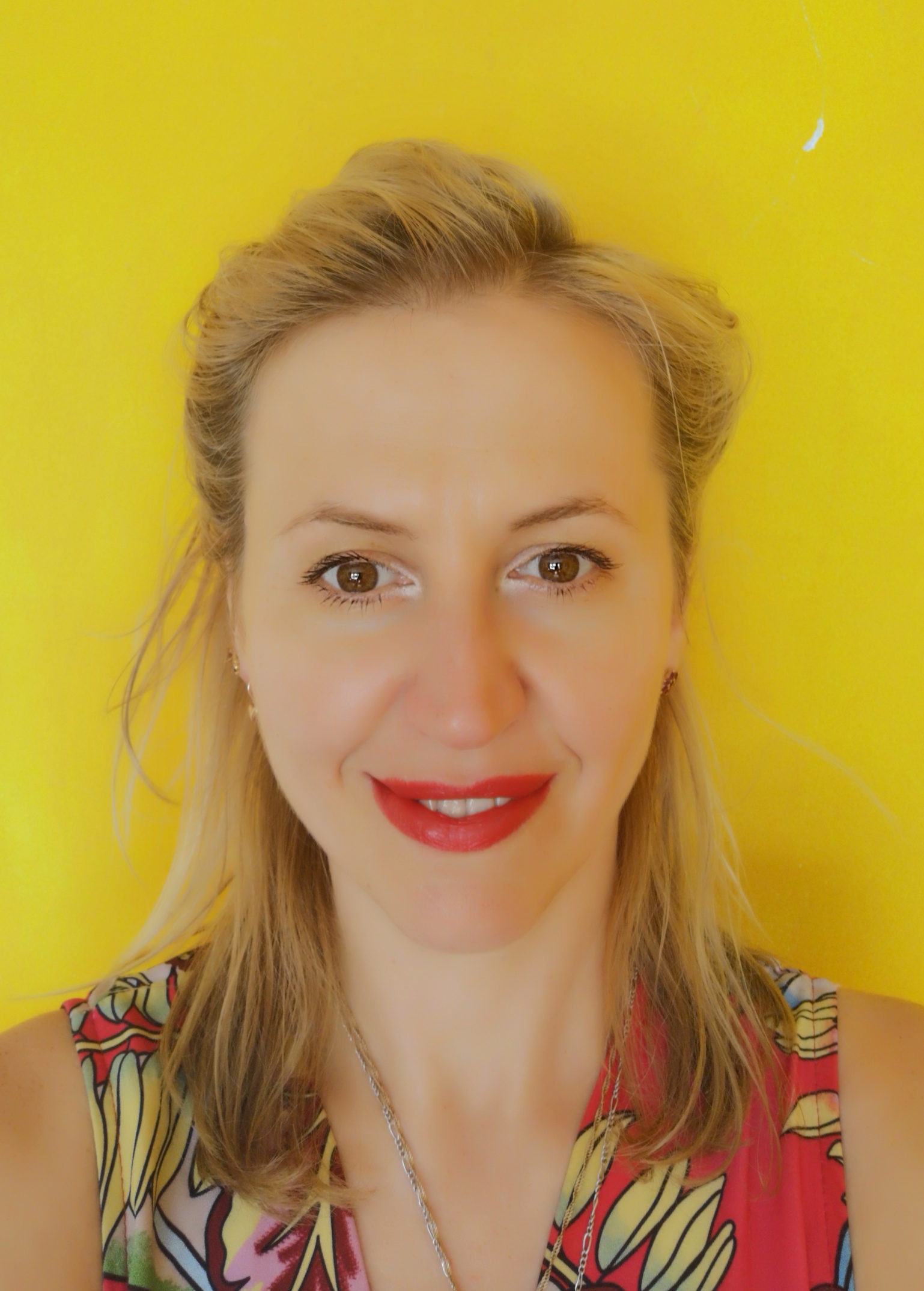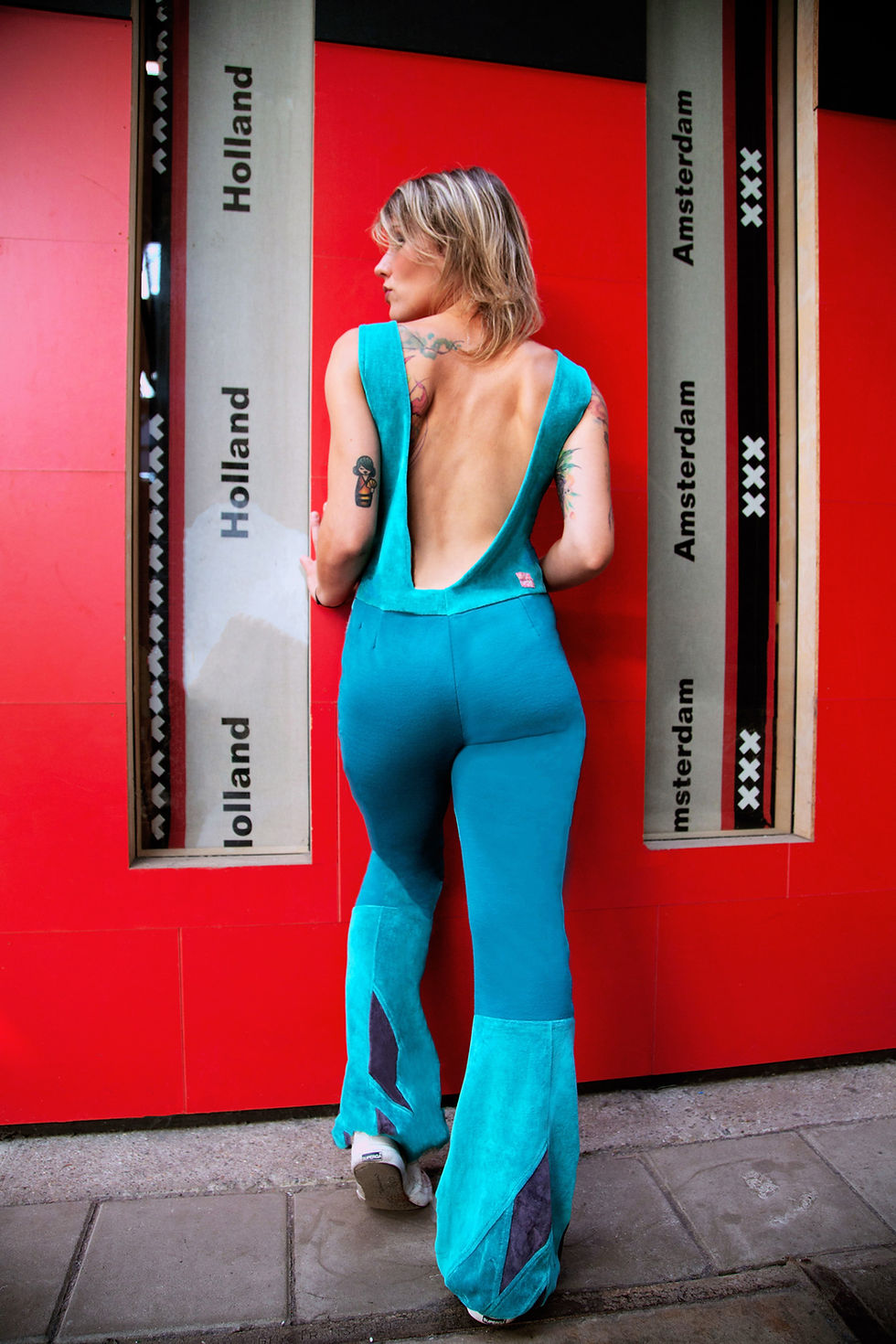Meta Censorship, the Soviet Union and the Art of the Absurd
- Dorit Kozlovski

- Aug 14, 2025
- 5 min read
Updated: Oct 9, 2025
🌐 Meta Censorship, the Soviet Union and the Art of the Absurd
Meta blocked my Facebook access a few years ago. No appeal, no conversation, no “Hey, maybe there’s been a mistake?”
Nothing.
It’s a full digital exile.
This means I can’t access my creative page or do anything to redeem 15 years of input — although they do keep sending me those ridiculous, robot-generated “urgent” messages about sending something in to avoid losing the page. Messages I cannot respond to.
Instagram?
Highly surveilled. The result? Zero interest from me in offering them any further attention or action.
It feels eerily familiar. Like the Soviet Union — where one could also not show any hardship, never talk about wellness or health issues, political views outside the official agenda, gender, sexuality, or other “unapproved” topics.
Meta’s List of “Don’t You Dare” Topics
But here’s the twist: Meta even has a formal list of what you must not talk about, dressed up as “Data Source Categories” in the Meta Business Help Centre.
Amongst many other topics they include:
Health and wellness — So if you’re a wellness coach, yoga teacher, or just someone with a headache, tread carefully.
Politics — Because no one ever changed the world with a political opinion, right?
Religion — Discussing spirituality is fine… as long as it doesn’t involve any actual beliefs.
Race — You may notice everyone’s skin tone, but whatever you do, don’t talk about it.
Sexuality — The internet has plenty of that already, but apparently not in Meta’s walled garden.
Gender identity — Because who you are should never be discussed on a platform allegedly built for connection.
Personal hardship — Definitely don’t talk about challenges, because we wouldn’t want humans connecting over shared experience.
The list reads like a parody of itself — a perfect example of Meta censorship in action. But it’s not.

The Soviet Union School of Creativity
The irony?
Artists have always been fueled by exactly this kind of censorship.
The Soviet Union accidentally birthed a creative underground because there was nothing original in the shops.
When you can’t buy it, you make it. When you can’t speak it, you paint it, sing it, or slip it into a poem nobody in power understands.
Crisis has fueled artists for centuries — Banksy, Van Gogh, countless others. When the gatekeepers close the gates, artists simply tunnel under them.
The Nature of Creation (and Destruction)
What you may create can be destroyed in a day. That’s true for art, social media pages and even empires.
But the spirit — that inner, wordless spark — can’t be destroyed by any outer circumstance.
That’s the nature of physical reality: nothing, not even AI, is permanent.
Everything in physical reality comes with an expiry date the moment it’s published.
Just like the Sun. Just like the Universe.
So, Meta, delete my page. Categorize my “data source” however you wish. Artists know how to thrive without your platform — we’ve been doing it since long before your algorithms were born.
And if history teaches us anything, it’s this: the more you tell people what they can’t say, the more creative they get in finding a way to say it.
Celebrating DURGA – A Creative Journey Worth Remembering
Before Meta erases it from existence, I want to honour the DURGA Facebook page — a living archive of wearable art, photography and moments that connected creativity with consciousness.
From hand-knitted serpent details symbolising transformation, to up-cycled couture that breathed life into forgotten fabrics, this page captured the essence of independent artistry: raw, authentic and unfiltered by algorithms.
Every post, every comment, every shared moment was part of a global creative conversation — one that no deletion can truly silence.
Even if Meta removes the platform, the spirit of DURGA — just like the spirit of all true art — continues in every stitch, every photograph and every story told beyond the digital walls.

Frequently Asked Questions about Meta Restrictions, Disabled Accounts & Instagram Visibility
Q: Why was my Facebook account disabled with no reason given?
A: Facebook sometimes disables accounts after automated policy checks or security flags. Notices can be generic and may not include specifics. If appeals are no longer available to you, your access can remain restricted indefinitely. In the article, I describe this as a ‘digital exile’—and why artists keep creating regardless.
Q: How do I appeal a disabled Facebook account if I can’t access the appeal form?
A: Normally you’d log in and submit a review from the Help Center, but some users get stuck in loops or lose appeal access after a set window. If you can’t reach the form or your appeal window has passed, there may be no official way to restore access. In my piece, I explain why I moved on creatively without the platform.
Q: What are Meta ‘data source categories’ in Events Manager?
A: They are labels Meta assigns to websites/apps that send data via Pixel or the Conversions API. Certain categories—like health, politics, personal hardship, race, religion, sexuality, and gender identity—can trigger restrictions on what data can be shared for ads or optimization.
Q: How do I check or change my data source category in Meta Events Manager?
A: In Events Manager, open your Pixel/Conversions API source and look for the ‘Manage data source categories’ section. You can request a review if the assigned category seems inaccurate. If it remains restricted, some event sharing to Meta may still be limited.
Q: Why did my Instagram reach suddenly drop—is this a shadowban?
A: Users call it a ‘shadowban’ when posts stop appearing on Explore/hashtags or reach plummets. Instagram attributes visibility changes to policy or algorithmic factors. Practically, avoid prohibited topics and risky hashtags, remove low-quality engagement tactics, and give posts time to recover.
Q: How can I test if my Instagram posts are being hidden?
A: Use a unique hashtag test: publish with a brand-new tag, then check from another account or logged-out browser if your post appears on that hashtag page. If it doesn’t show after some hours, your visibility may be limited. Also audit recent hashtags and remove any flagged terms.
Q: Can Meta restrict discussion of health, politics, religion, or gender?
A: Meta’s advertising tools limit the sharing and targeting of data tied to sensitive categories. While you can post about these topics, ad delivery and data sharing for optimization can be restricted. That tension is part of the satire in my article.
Q: If my personal Facebook is disabled, can I still access my Page?
A: Losing a personal profile often severs access to connected Pages. If you can’t add another admin beforehand, recovery may be impossible. This is why creators should keep independent websites, mailing lists, and backups beyond social platforms.
Q: What should artists and small businesses do if Meta removes access?
A: Diversify. Host your work on your own site, keep backups of media and contacts, run an email list, and treat social platforms as distribution—not the archive. As I write, creation outlives platforms: the spirit of the work is not dependent on any single network.
Q: Why compare Meta’s rules to the Soviet Union?
A: Both involve heavy restrictions on free expression and curated “acceptable” topics. In each case, this environment forces creatives to find alternative ways to share ideas and art.
Q: How has censorship historically impacted art?
A: Censorship often fuels innovation. Throughout history, limitations have driven artists to develop new techniques, hidden symbolism, and underground movements.
Q: Can creative work outlast social media bans?
A: Absolutely. Platforms may remove accounts, but they cannot erase the existence of the work itself or the inspiration behind it.





Comments